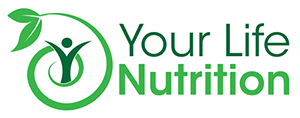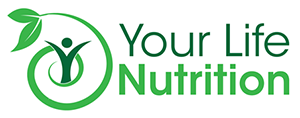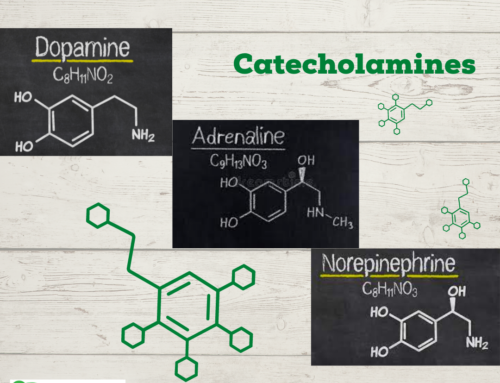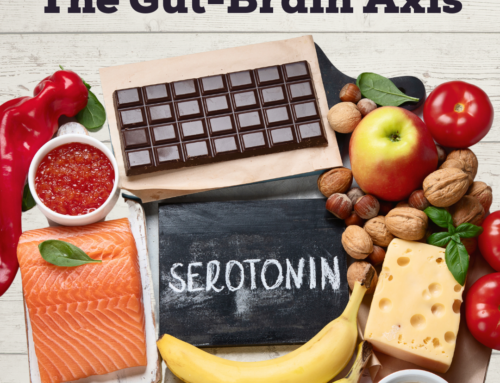Have you ever gone for a walk on a spring day and smelt the flourishing foliage? Or have you ever taken a big bite of a juicy apple and tasted the sweet and delectable fruit? Smell and taste are two of our senses that give life excitement, but they can also help warn us of surrounding danger like the smell of toxic gas or an unintended fire. These are just two of the functions that the mineral zinc plays a role in. It does so much more to protect and heal our bodies by helping the immune system get us better during illness and healing our wounds.1 In addition to these, zinc also helps in our body’s metabolism.1
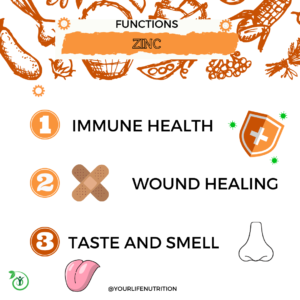
There is a common misconception that vitamin C should be supplemented to cure a cold, however, the real hero in speeding up your ailment is zinc.1 Something important to keep in mind if you plan to add oral zinc to help your cold is that this has been shown to affect other drugs and medication so it is important to discuss this with your physician first.1 Zinc lozenges or syrup taken within 24 hours of a cold is recommended to help in recovery and length of illness.1 Zinc administered through the nasal passage does have risk for loss of smell, both temporary and permanantly.1
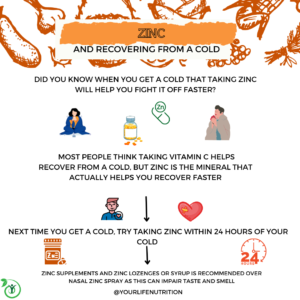
Now, zinc is a trace mineral which means our bodies need a smaller amount to complete its massive functions.2 Zinc is actually involved in over 100 chemical reactions by helping out the enzymes on duty.2 Women over the age of 19 need 8 mg per day and men over the age of 19 need about 11-12mg per day.2
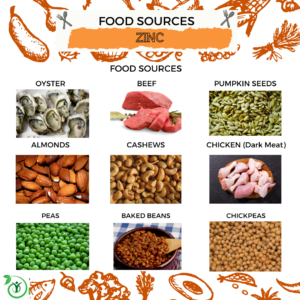
We can find zinc in the following foods listed below:3
- Oysters = 74 mg per 3 oz.
- Beef = 7 mg per 3 oz.
- Baked Beans = 2.9 mg per ½ cup
- Dark Meat Chicken = 2.4 mg per 3 oz.
- Pumpkin Seeds = 2.2 mg per 1 oz.
- Yogurt = 1.7 mg per 8 oz.
- Cashews = 1.6 mg per 1 oz.
- Chickpeas = 1.4 mg per ½ cup
- Almonds = 0.9 mg per 1 oz.
- Peas = 0.5 mg per ½ cup
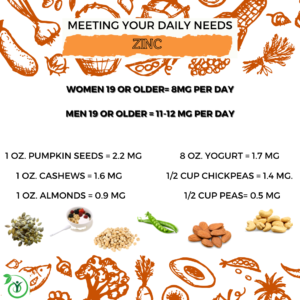
Something to keep in mind is that the bioavailability for vegetarian sources of zinc is not nearly as high as it is for those animal sources listed above.3 This simply means that if you are only consuming the vegetarian sources, less will be absorbed so either higher amounts may be needed or a supplement may be necessary.3 Typically, a vegetarian diet requires 50% more of the Recommended Daily Allowance (RDA) which for women would be 12 mg per day and for men 18 mg per day.3 As always, talk first with your physician if you think you may need to incorporate a zinc supplement into your diet.3 And remember, if you ever get a cold, think about taking zinc to help boost your immune response!
References:
- Zinc. Mayo Clinic. https://www.mayoclinic.org/drugs-supplements-zinc/art-20366112. Published November 17, 2020. Accessed February 19, 2022.
- Zinc. The Nutrition Source. https://www.hsph.harvard.edu/nutritionsource/zinc/. Published September 27, 2021. Accessed February 19, 2022.
- Zinc – health professional fact sheet. https://ods.od.nih.gov/factsheets/Zinc-HealthProfessional/. Accessed February 20, 2022.
Post Created by University of Akron Dietetic Intern: Michaela Campbell
